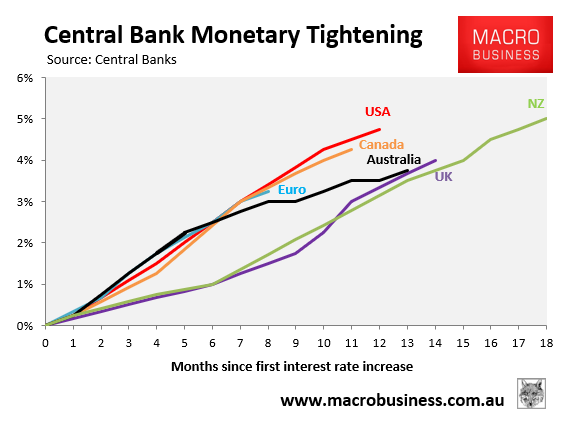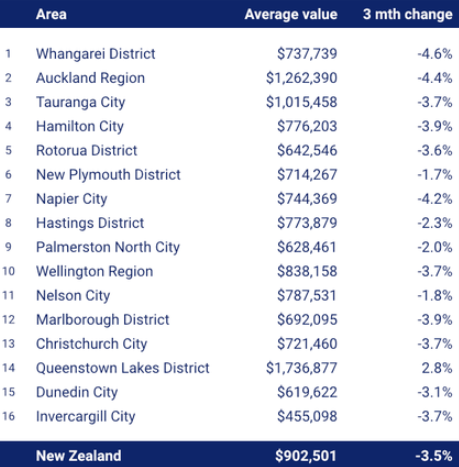The Reserve Bank of New Zealand’s aggressive interest rate hikes, which have led the developed world, continues to decimate the nation’s housing market.

According to Statistics New Zealand’s building approval data, reported in Interest.co.nz, just 9,719 new homes were consented in the first quarter of this year, a 21.2% decrease from the same period previous year.
It was the first time since the second quarter of 2020 that the number of new homes permitted in any quarter of the year was below 10,000.
This means that a significant drop in residential construction activity is on the way as new projects are completed.
Meanwhile, the industry’s severe inflationary pressures continue to have a deleterious impact on building costs.
The average expected build cost per square meter has surged 14.7% over the past year, from $2695 per sqm in Q1 2022 to $3091 per sqm in Q1 2023.
This is the first time the cost has risen above $3000 per sqm.
In turn, the expected average building cost per house, excluding land, has risen from $394,554 in Q1 2022 to $440,706 in Q1 2023, an increase of 11.7%.
Meanwhile, New Zealand house prices continue to decline at a swift pace, with national values falling by more than $1,000 a week.
According to the QV House Price Index, the national average home value was $902,501 at the end of April, a $5,236 decrease from the end of March and $161,264 (15%) below the peak value at the beginning of 2022.

Auckland continues to lead the decline, with values falling 4.4% over the April quarter to be down 15.4% year-on-year.
Commenting on the result, QV national spokesperson Simon Petersen said that buyers remained scarce, even though new listings fell to historic lows in April.
“Investors are sitting on their hands for the most part. Owner-occupiers are having to weigh up the considerable challenges and risks of trying to buy and sell in such a difficult market environment”.
“This corrective cycle isn’t over yet – it still looks as though the market is destined for a difficult winter ahead”, Petersen said.
Tony Alexander’s latest survey of real estate agents suggests similar, with fewer people showing up to open homes, most agents still seeing prices falling, and buyers still concerned about high interest rates, difficulties accessing finance, and being plunged into negative equity.
In short, the Reserve Bank’s hawkish interest rate settings have knocked the stuffing out of the nation’s housing market.

